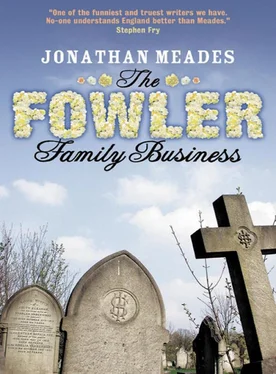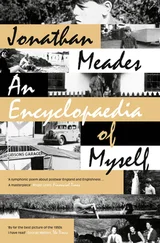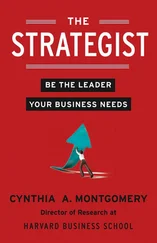Of course he wasn’t. He was a one, a daredevil, a cheeky monkey. This wasn’t the first time. Everyone can remember the early hours of New Year’s Day 1960 when after being ejected from the Man Friday Club (under age, over the limit, we’ve our licence to think of sonny) he had run up a drainpipe and had scaled a roof of the Stanley Halls and had stood silhouetted against the full-scale map of the heavens shouting to the stumbling revellers in the street below: ‘I am Stanley and this is my hall.’
He had offered variations on that boast to Henry for so long as Henry could recall. Henry’s memories of it were in his ribs. That’s where Stanley would elbow him when they walked past the Stanley Halls and Stanley Technical Trade Schools. They walked past so often that Henry suffered costal bruising from his quasi-brother’s joshing prods and proud jabs. Stanley’s identification with W.R.F. Stanley might have been founded in nothing more than the coincidence of a common name but it had grown from that frail beginning into heroic idolatry. W.R.F. was the odd one out in Stanley’s personal pantheon of sideburned rock and rollers, quiffed balladeers, d.a.’d teen idols, bostoned film actors, Brylcreemed footballers. W.R.F. was old, dead, from long ago when they wore the wrong haircuts. But, as Stanley persistently reminded Henry, he was his own creation: he had had no family business to enter, he had started from nothing and had gone so far that he had been able to buy the land and to design and build the loud structures at the bottom of South Norwood Hill. That his philanthropy was boastful is unquestionable – why else make buildings of such striking gracelessness and coarse materials if not to clamour for attention for oneself and one’s inventions.
The most celebrated of W.R.F.’s inventions was the Stanley Knife, the sine qua non of a particular sort of South London conversation. Although the plump bulk of the handle militated against the achievement of the bella figura that Stanley Croney was keen to exhibit, he invariably carried a Stanley Knife: a natty dresser needs protection against the sartorial hun. His knife was his daily link to W.R.F., to the self-made man Stanley longed to be. Stanley Croney was going to emulate him. He too would have a house like Stanleybury, he too would endow a clock tower in his native suburb to commemorate his wedding, he too was on the way to being his own man, and that meant having a way with what Mr Croney called ‘the ladies’. Henry despised Stanley’s ingratiating charm, his flimsy slimy stratagems.
He knew Janet Cherry by her loose reputation. And he despised her, and her kind, for their susceptibility to Stanley who was never at a loss for a quip. How could they fail to see through his corny ploys? How could they like someone who had no respect for them as people ? Did they not realise that he was an apprentice wolf, preying? Stanley greeted her with lavish rolls of his right hand and a balletically extended leg as though he were a peruked fop, Sir Grossly Flatterwell making the first step in the immemorial dance which culminates horizontally. They had, Stanley hinted when he had observed Henry pointing to his watch and she had gone her stilettoed beehived way, already culminated. That anyway was how the virgin Henry interpreted Stanley’s ‘It’ll have to be another bite at the cherry if Melodie J doesn’t come across. Not that she won’t – she’s just rampant for it.’ It was a foreign country, yet unvisited by Henry who’d never been on a Continental holiday either.
‘And,’ Stanley went on, confidential, man of the world to a mere boy, ‘they say she gobbles.’
Henry, morose, didn’t know what Stanley meant. He was ashamed that he had not entered the carnal world of which Stanley was now a citizen. Stanley was less than six months his senior: he told himself, without conviction, that six months hence he, too, might … might what? Do wrong, that’s what he knew it to be. Premarital intercourse, as it was then known, was as wicked as electric guitars and didn’t happen to nice people, to responsible people, to people called Fowler who attended church. It was for gravediggers, not for funeral directors. It was not for those who respected their mothers, their mothers’ sex, the primacy of Christian marriage, the sanctity of the family, the notion of true love as explained by Tab Hunter who wore neither hair cream nor sideburns: ‘They say for every girl and boy in this whole world there’s just one love …’Just one love. Wait till she comes along. You’ll know it’s her. And it is invariably attended by God’s revenges of pregnancy, gonorrhoea, syphilis, gonorrhoea and syphilis (‘a royal flush’ according to sailors, and they know), social disgrace: ‘She’s had to go away’ was what Mrs Fowler said of more than one office help. If the fallen one was a cleaner who couldn’t type and wasn’t allowed to answer the phone because of her common accent she eschewed euphemism: ‘She’s gone to have an illegit. No one’ll want her now.’
This carnal world was fraught with such dangers – social, moral, irreligious, medical – that Henry Fowler was not sure he wished to enter it. Yet he was achingly jealous of Stanley who was so confident in his new knowledge, so easy with it. And he broached the subject of that evening with trepidation and with a resentment at what he knew would be Stanley’s response.
‘You … you’re going to a party then?’
‘Dave Kesteven’s sister, Sheila. Parents are away so …’
‘I thought we were going to the flicks.’
‘Yeah … look sorry. But we can go any time. Can’t we? Eh? You can come. Have a crack at the cherry – never knowingly says no.’
‘I’ll think about it,’ said Henry, meaning ‘no’.
‘Your choice.’
And here Stanley did one of his party tricks. He put his hands in his jacket pockets and turned a standing somersault. A man, obediently pushing his bicycle from the end of the pedestrians-only rusty old girder bridge gaped in astonishment then scooted with one foot on a pedal before mounting the black Hercules with calliper brakes. He has never been traced.
Henry Fowler, the only living person to have seen him, described him as ‘quite old, wearing an old man’s cap, sort of unhealthy looking, and he had this kitbag thing which was all mixed up with his cape – he had a cape like a tarpaulin and it was all bunched and sticking out funny because of the kitbag; he had cycle clips, and very big feet’.
Unhealthy, how? A sort of creamy yellow complexion. Waxy, you might say, very like some laid-out corpses. Henry Fowler, who often helped out around the family business which he would enter when he left school next summer, was well acquainted with such.
Stanley clapped his hands in self-applause, grinned madly, made Charles Atlas gestures and saluted the horizontal cape which was now astride its saddle and peddling unsteadily in the direction of the allotments. He marched from the pavement on to the rusty old girder bridge with Henry (as usual) trailing behind him. The bridge was just wide enough for three persons to walk side by side without brushing its sides, which were sheer metal sheets – those of average height had to jump to get a sight of the distant track below, a sight which would thus be retinally fixed. The bridge was lavishly riveted, the rivet heads stood proud of the metal like dugs. Each side was topped by a horizontal parapet, eight inches wide, also sewn with rivets. The flaked paint was a history of the Southern Railway’s and the Southern Region’s liveries – dun, cow brown, algae green, cream, battleship. There were crisp islets of rust, ginger Sporades which shed flakes among the puddles on the threadbare macadam of the walkway.
Читать дальше












